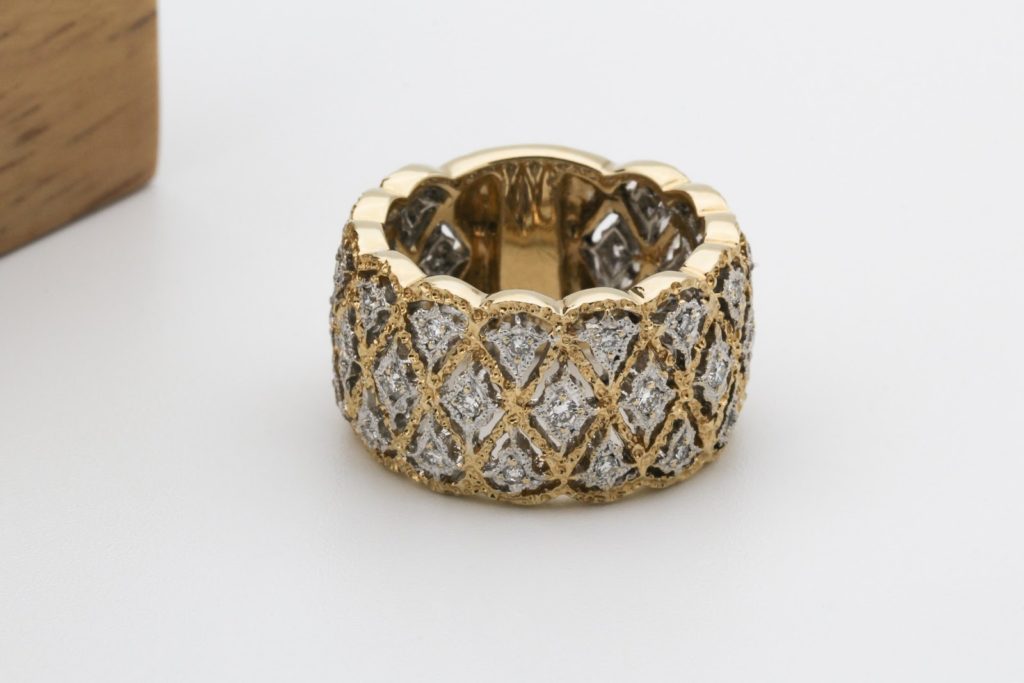How to Tell the Difference Between Different Types of Gold

Thinking of Selling Gold? Well, you’re in luck, because gold is a valuable metal. You can expect to make a profit, whether you Sell Gold Jewelry or Gold Coins.
But if you own different types of gold, it may help to brush up on their differences. This way, you’ll have a better idea of how much you can make (and what your buyer might be interested in).
Here’s what you should look for:
Gold Colors
One way to determine what type of gold you have is to examine its overall color.
Understandably, you may associate “gold” with a bright yellow shade. But when pure gold is mixed with other metals, it can produce a completely new hue.
Colored gold has become popular in recent years, so there’s a good chance you own a few pieces. Common versions include:
- Yellow gold. Pure gold has a yellow color. It’s the most hypoallergenic gold.
- White gold. At first glance, White Gold might pass as silver. But if you look closely, it will have an off-white color and a tinge of pale yellow, pink, or brown. White gold is made of pure gold plus one or more white metals, like platinum.
- Rose gold. If your gold has a pinkish hue, it’s Rose Gold. This metal is made by mixing pure gold with copper and silver.
- Green gold. Green gold, which is made of pure gold and silver (and sometimes copper), has a greenish tint.
Gold Markings
You can also check the markings on your gold piece. Specifically, keep an eye out for “K,” which stands for “karats.” The number of karats indicates the amount of gold in an item.
Pure 100% gold is labeled with “24K.” It’s also very soft, so it’s hardly ever used in jewelry. You probably won’t find “24K” on Gold Jewelry pieces.
Other karat markings include 10K, 12K, 14K, 18K, and 22K. The higher the number, the the higher the gold content.
A majority of gold jewelry in the United States is created with 14K, so you may find this marking on your pieces.
Other stamps to look for include:
- GP or GEP. This stands for “gold plated” or “gold electroplated,” respectively. It means that the item is actually stainless steel or brass dipped in gold (at least 10K). The gold coat is very thin, so you might even notice it flaking off.
- GO or RGP. This indicates “gold overlay” or “rolled gold plated.” It’s made of stainless steel, brass, or copper, plus a gold layer of 10K or higher. The coating is thicker than GP or GEP, so it’s slightly more durable.
- GF. A gold piece with a “GF” stamp is gold filled. GF items are typically made of copper or brass with a gold sheet. Again, the gold is usually at least 10K.
- 925. A “925” marking means that it’s sterling silver with a gold coat. It’s also known as vermeil.
- No stamping. This may also indicate vermeil, which is sometimes not labeled.
Sell Your Gold at Southwest Jewelry Buyers
If you’re unsure what Types of Gold you own, visit us at Southwest Jewelry Buyers. We’re happy to explain the difference between different kinds of gold, along with their current value.
Our experienced, friendly team can also provide guidance on Selling Gold in Phoenix. And, yes—we buy scrap gold and broken jewelry, too!
To schedule an appointment, Contact Us Today. We’re located in Scottsdale Airpark and available to meet six days a week.
[/et_pb_text]
[/et_pb_column]
[/et_pb_row]
[/et_pb_section]